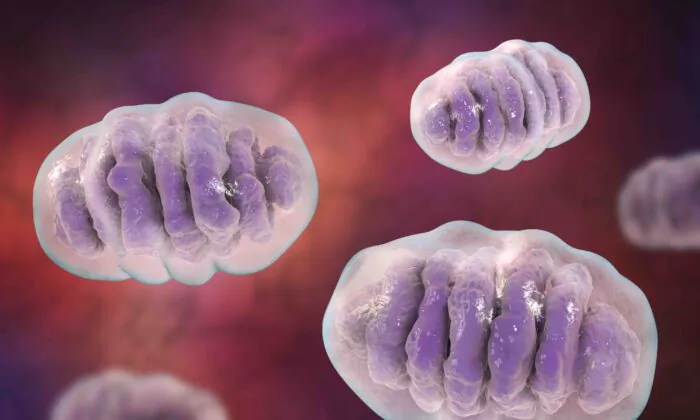Scientists have discovered a link between mutated mitochondria in cancer patients and a successful response to immunotherapy, signaling a new potential treatment.
According to a new study published in Nature Cancer, nearly half of all cancer patients have mitochondria with DNA mutations. The mutations are a blessing of sorts, as they help the body respond to immunotherapy, a type of cancer treatment. In fact, the treatment can be significantly more effective when mitochondria are defective.
“We found that tumours which have the most mutated mitochondrial DNA are far more sensitive to immunotherapy,” Payam Gammage, co-lead author of the study and group leader at the Cancer Research UK Scotland Institute, said in a statement.
What Are Mitochondria?
Mitochondria are like compartments in the body’s cells that store energy. Their function is to break down food molecules and turn them into a type of cellular energy called ATP. Because of their unique structure, mitochondria can fuse and divide to form a web-like network to meet the high energy demands of the body’s organs.
Additionally, mitochondria have their own genetic material called mitochondrial DNA. Mutations to the mitochondrial DNA are more common than you might think; research has indicated that about 50 percent of mitochondrial DNA experiences mutations. Mutations in mitochondrial DNA can lead to dysfunction in the body. In addition to cancer patients, such mutations have been found in patients with neurogenerative disorders, heart diseases, and stroke.
More Mutations Make for Better Treatment Response
Yet even for how common mitochondrial DNA mutations are in cancer, scientists have yet to understand mutation’s role in cancer fully. In this new study, Mr. Gammage and his team demonstrated a link between mitochondrial DNA mutations and a patient’s response to the immunotherapy drug nivolumab. Patients whose cancer tumors had high levels of mitochondrial DNA mutations were up to two and a half times more likely to respond positively to the drug.
Unlike chemotherapy, immunotherapies encourage the patient’s immune system to fight cancer. Nivolumab binds to a protein on the surface of T cells to keep cancer cells from suppressing the immune system. It is a standard treatment for patients with melanoma and lung, esophageal, and bowel cancers.
To determine the effects mitochondrial DNA mutations had on treatments, the research team injected mice with mutated mitochondrial DNA with a dose of immunotherapy twice weekly for up to three weeks.
“For the first time, we can see exactly what mitochondrial DNA mutations do when we create them in the lab,” Ed Reznik, co-lead author of the study and computational oncologist at Memorial Sloan Kettering Cancer Center, said in the statement. “But what took us by surprise is how much the cells around the tumour are affected—which we can exploit to make the tumor vulnerable to treatment.”
Mr. Gammage and his team believe that routinely testing cancer patients for mitochondrial DNA mutations could enable health care professionals and cancer care teams to determine which patients would benefit the most from immunotherapy even before treatment starts. Specifically, the researchers believe that mitochondria-focused treatments can help extend the lives of cancer patients.
“Thanks to this research, we now have a powerful tool which gives us an entirely new approach to stopping cancer in its tracks,” Mr. Gammage said.
Cancer Research Horizons and Cancer Research UK funded the study and are already determined to work toward a new treatment.
“Treatments which exploit over-burdened mitochondria in cancer are now possible. Now we need clinical trials to see which combinations work best in patients,” Ian Foulkes, CEO of Cancer Research Horizons, said. “Through our innovation engine Cancer Research Horizons, we’re planning to accelerate this discovery into the clinic and ensure as many patients as possible can benefit.”



